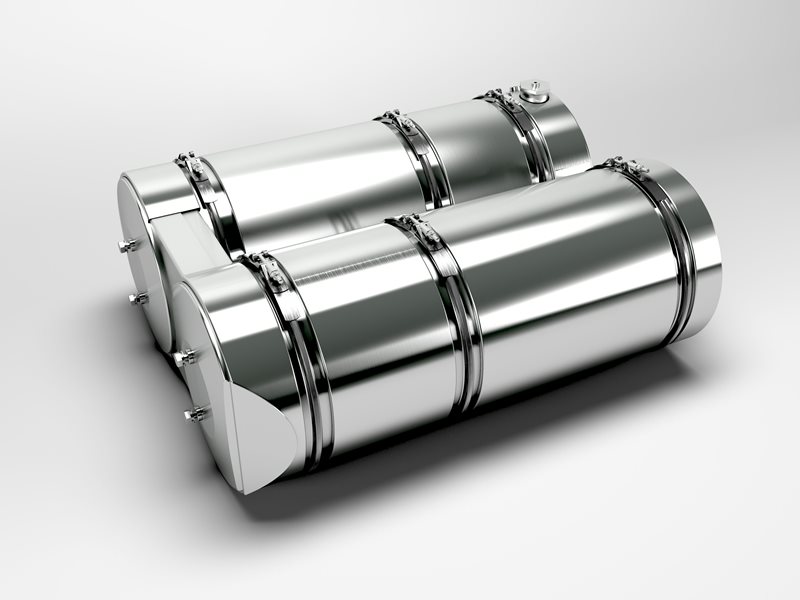Maidstone was the first stop on Eminox’s Clean Bus Technology Roadshow. Hosted jointly by Eminox, Go-Ahead Group, Johnson Matthey and Kent County Council, attendees heard from TfL, local authorities and operators on how they are working together to meet demanding air quality targets. As the proven technology for ensuring buses as old as Euro III meet the same emissions standards as new vehicles, delegates were also invited to take a tour of a double-decker bus retrofitted with an Eminox SCRT system.
As improving air quality is of utmost importance in England, the DfT and DEFRA are committed to supporting local authorities in reducing NOx emissions from local buses. Consequently, several cities and counties such as Kent, Leicestershire and Lincolnshire have received government grants. All are advised to look seriously at SCRT retrofit as it has been shown to be the most cost-effective route to reducing emissions and improving public health.
The technology is already proven and mature, it was further developed by Eminox as part of a TfL programme to upgrade all London buses to meet Euro IV standard or better for NOx emissions by the end of 2015. It has since been adopted for London’s bus retrofit programme – the largest of its kind in Europe – after independent testing during real-world operation proved that even in tough urban conditions it could reduce harmful emissions by over 80%.
David Brazier, Cabinet Member for Transport and Environment at Kent County Council, opened with a keynote address highlighting the need to work cross-sector and cross boundary to address poor air quality, which is associated with 29,000 deaths per year. Kent is working in partnership with operators and local businesses and has spent £600,000 in the past two years on reducing emissions. For example, it has spent £230,000 to support Arriva’s investment in 11 new hybrids and has used grants from DEFRA and DfT to help fund the retrofit of a further 28 vehicles.
Finn Coyle, Environmental Manager at TfL shared his experience of SCRT retrofit and highlighted how road transport is one of the largest contributors of harmful NOx and NO2 emissions in the capital. Following a successful trial which proved real-world emission reductions, TfL is working with Eminox to upgrade over 500 Euro 3 buses, with a total of 900 buses to be fitted with abatement equipment by March 2014. Routes have been prioritised according to where NO2 emissions are highest and can be attributed to public transport. For example, Putney High Street was targeted and monitoring has shown that retrofitting local buses is significantly improving air quality. However, Heathrow featured far lower on the list as the airport is responsible for a high proportion of local air pollution.
Jim Collins, Fleet Manager for Go-Ahead Group gave the operator perspective on the Clean Bus Technology Fund, highlighting government subsidies are helping the company in meeting its social responsibility and limiting the impact of its operations on the environment. The company operates 4,500 buses a day, with an increasing focus on operating in dense urban environments. It launched its SCRT programme with Eminox in 2011 and has now upgraded 294 Euro 3 buses to meet the latest emissions standards. The majority of these were enabled through government funding, however, Go-Ahead Group has also funded 20 of these on its own. In addition, the Clean Bus Technology Fund is helping to retrofit a further 50 buses in Brighton.
John Newington of Maidstone Borough Council spoke of the work of the Kent and Medway Air Quality Partnership highlighting the extent of the region’s poor air quality and some of the strategies for addressing it. For example, in the High Street buses account for 93% of nitrogen pollutants. However, elsewhere they are responsible for just 22% and some of the barriers to reducing emissions from cars and vans may also need to be looked at.
Steve Rawson, Head of Retrofit Engineering at Eminox, concluded the session with a more in-depth focus on SCRT and a practical demonstration of it outside on a Go-Ahead Group bus. He explained how the system combines SCR (Selective Catalytic Reduction) and CRT (Continuously Regenerating Trap) technology to reduce PM, CO, HC, NO2 and NOx. Eminox is currently supplying the systems to five different operators and has perfected it for Dennis Darts and Volvo B7TL double deckers. The company has trained some operators’ technicians to service the devices but the majority prefer to take out a repair and maintenance package with Eminox.
Back to News and Features